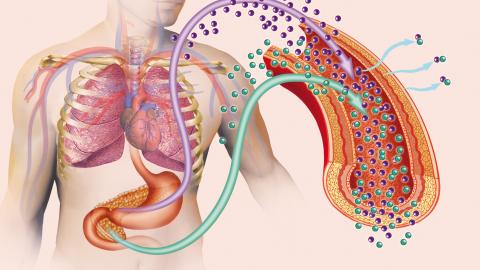Scientists Reprogram Cells to Fight Diabetes

What’s the Latest Development?
University of Pennsylvania researchers have successfully “reprogrammed” certain cells to produce more insulin in the body, representing a potential genetic treatment for patients diagnosed with diabetes. “For years researchers have been searching for a way to treat diabetics by reactivating their insulin-producing beta cells, with limited success. Turning related alpha cells into beta cells may one day offer a novel and complementary approach for treating type 2 diabetes. Treating human and mouse cells with compounds that modify cell nuclear material called chromatin induced the expression of beta cell genes in alpha cells.”
What’s the Big Idea?
Type 1 and type 2 diabetes are not only caused by an insufficient amount of insulin (produced by beta cells) but also by an excess of glucagon (produced by alpha cells). “In theory, transplantation of healthy beta cells—for type 1 diabetics in combination with immunosuppression to control autoimmunity—should halt the disease, yet researchers have not yet been able to generate these cells in the lab at high efficiency, whether from embryonic stem cells or by reprogramming mature cell types.” Researchers now reason that they might reprogram alpha cells towards the beta-cell phenotype to produce these much-needed insulin-producing cells.
Photo credit: Shutterstock.com





